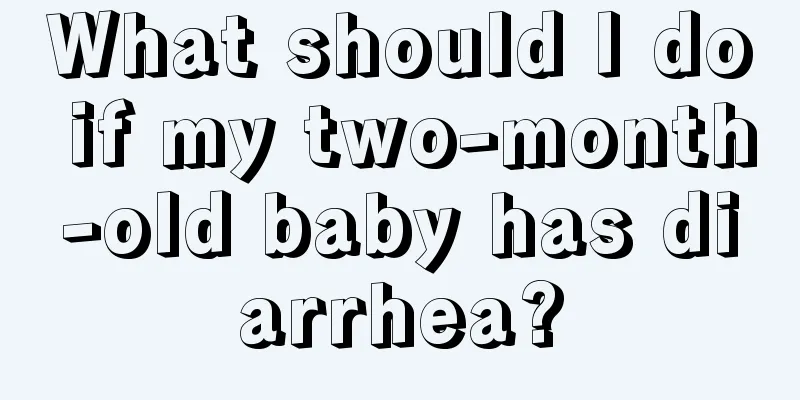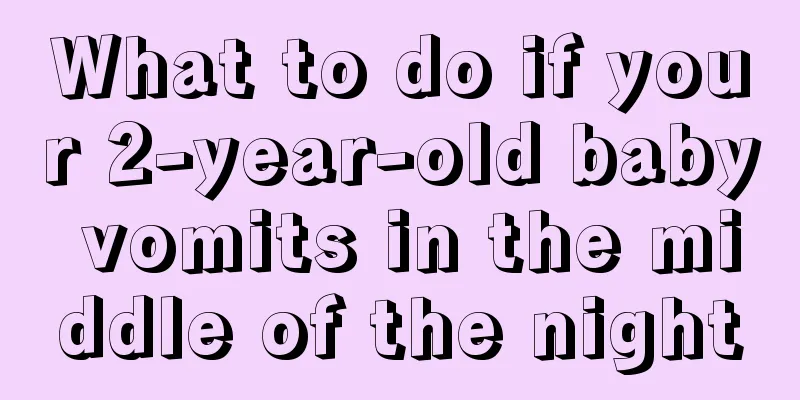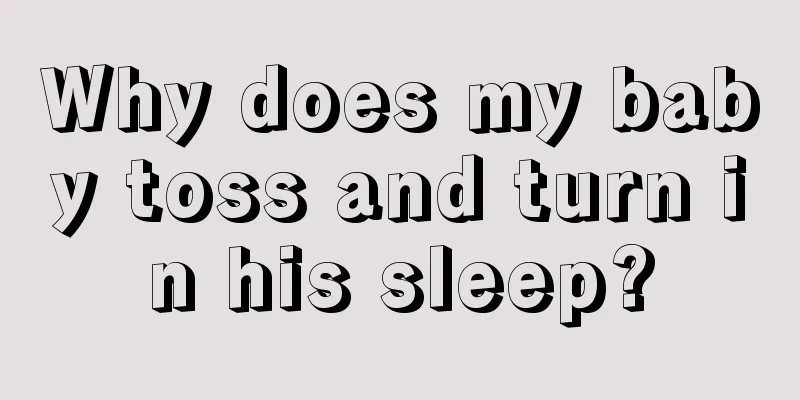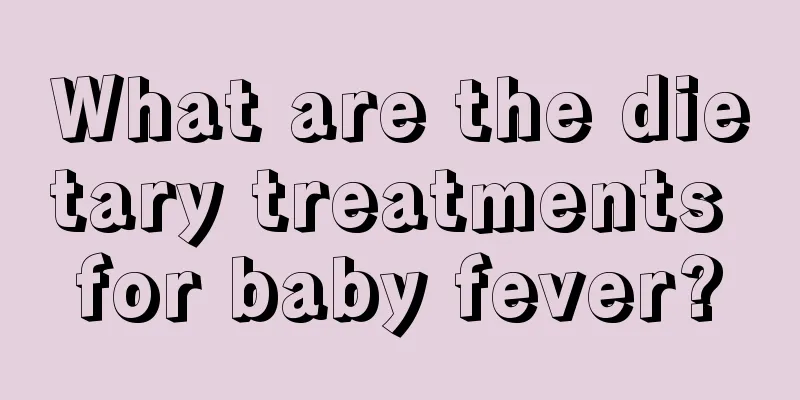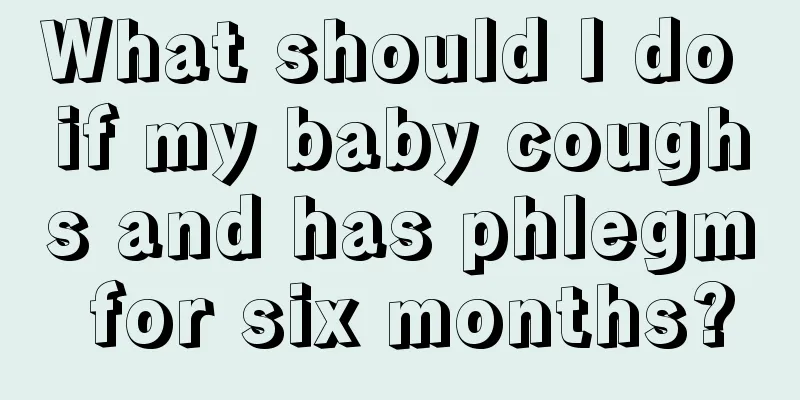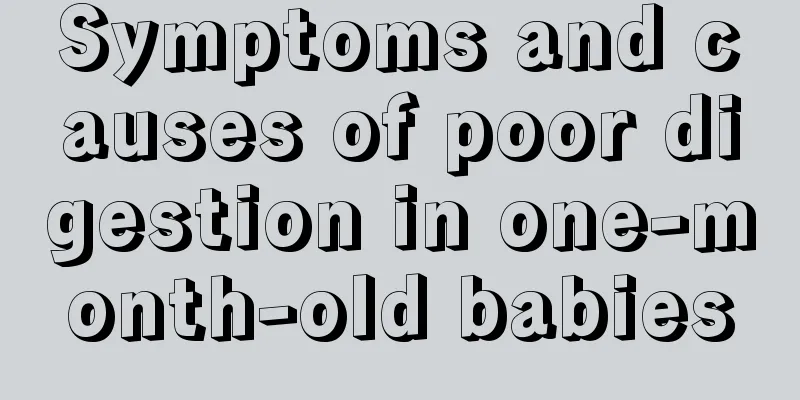What are the early symptoms of cerebral palsy in infants?
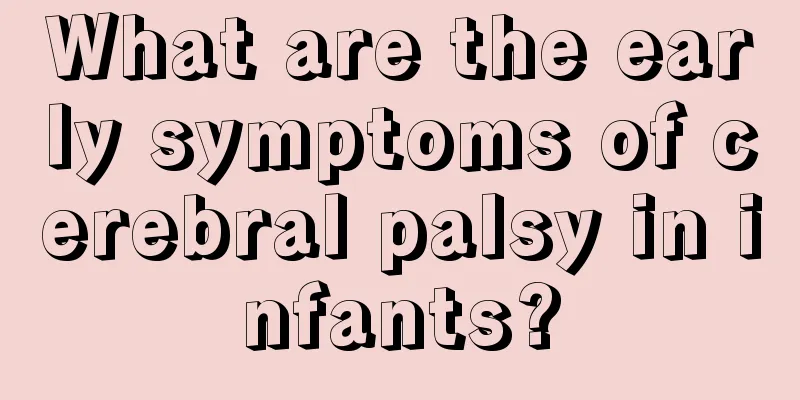
|
The incidence of cerebral palsy in infants is relatively high. If parents do not understand the early manifestations of cerebral palsy in infants, they may miss the opportunity to treat the disease and cause irreversible consequences. Therefore, it is very important to understand the early manifestations of cerebral palsy in infants. Next, this article will introduce to you the early manifestations of cerebral palsy in infants. Let’s learn about this together. Neonatal cerebral palsy refers to a non-progressive brain damage syndrome caused by various reasons within one month after birth. The main manifestations are central movement disorders and abnormal postures, and are often accompanied by multiple disorders such as intelligence, vision and hearing, eating, swallowing, speech, and behavior, which will seriously affect the child's life. One thing to point out in particular is that the main impact of cerebral palsy on children is movement disorders. Some children may have a certain degree of mental retardation, but it is fundamentally different from the "dementia" caused by human chromosomal abnormalities and chromosomal aberrations. What are the early manifestations of cerebral palsy in infants? The early manifestations of cerebral palsy in infants are as follows: 1. Body weakness and decreased spontaneous movements are symptoms of hypotonia and can be seen in one month. If it persists for more than 4 months, it may be diagnosed as severe brain damage, mental retardation or muscle system disease. 2. The body becomes stiff. This is a symptom of hypertonia and can be seen in one month. If it persists for more than 4 months, it can be diagnosed as cerebral palsy. 3. Abnormal head circumference: Head circumference is an objective indicator of the morphological development of the brain. Children with brain damage often have abnormal head circumference. 4. Fixed posture: It is often caused by abnormal muscle tension due to brain damage, such as opisthotonos, frog position, inverted U-shaped posture, etc. It can be seen one month after birth. 5. Poor weight gain and inability to breastfeed. 6. Strabismus: If a 3-4 month old baby has strabismus and poor eye movement, it may indicate the presence of brain damage. The above is an introduction to the early manifestations of cerebral palsy in infants. The early manifestations of cerebral palsy in infants introduced above are some common symptoms and typical symptoms, which are easy to distinguish. Therefore, parents must pay more attention to changes in their children's bodies. Once they find that their children have the above symptoms, they should take their children to the hospital for treatment in time. |
<<: How to treat viral gastroenteritis in children
>>: How many times a day does a newborn baby poop?
Recommend
Why do children's eyelashes easily prick their eyes?
As we grow up, we sometimes blink constantly or g...
Treatment of bleeding belly button in babies
The incidence of baby belly button bleeding is ge...
Reasons why babies are restless when sleeping
Many parents or people who have accompanied their...
A brief introduction to the diet for seven-month-old babies
A baby is a new member of a family and the fruit ...
What to do if children have a cold or fever
Mothers are more worried when their children have...
Why are baby's eyelids red?
Red eyelids in babies are a very common problem n...
What to do if your baby has a cough, runny nose and hoarse voice
The baby has a cough, runny nose and hoarse voice...
What’s wrong with my child’s swollen eyes?
Swollen eyes are a symptom that can occur in both...
The harm of picky eating in infants and young children
Infants and young children grow relatively fast a...
What should I do if my 7-month-old baby gets angry?
In daily life, if you encounter some difficulties...
What to do if a child has a runny nose?
Children's physical health is very vulnerable...
What should children eat to nourish their liver and kidneys?
I believe that many parents are very worried abou...
What are the symptoms of indigestion in children?
If a child has indigestion, he or she should avoi...
What should I do if a little girl has spots on her face?
In life, many people pay great attention to their...
Reasons why newborn babies fart
Many newborn babies are not well adapted to the e...
